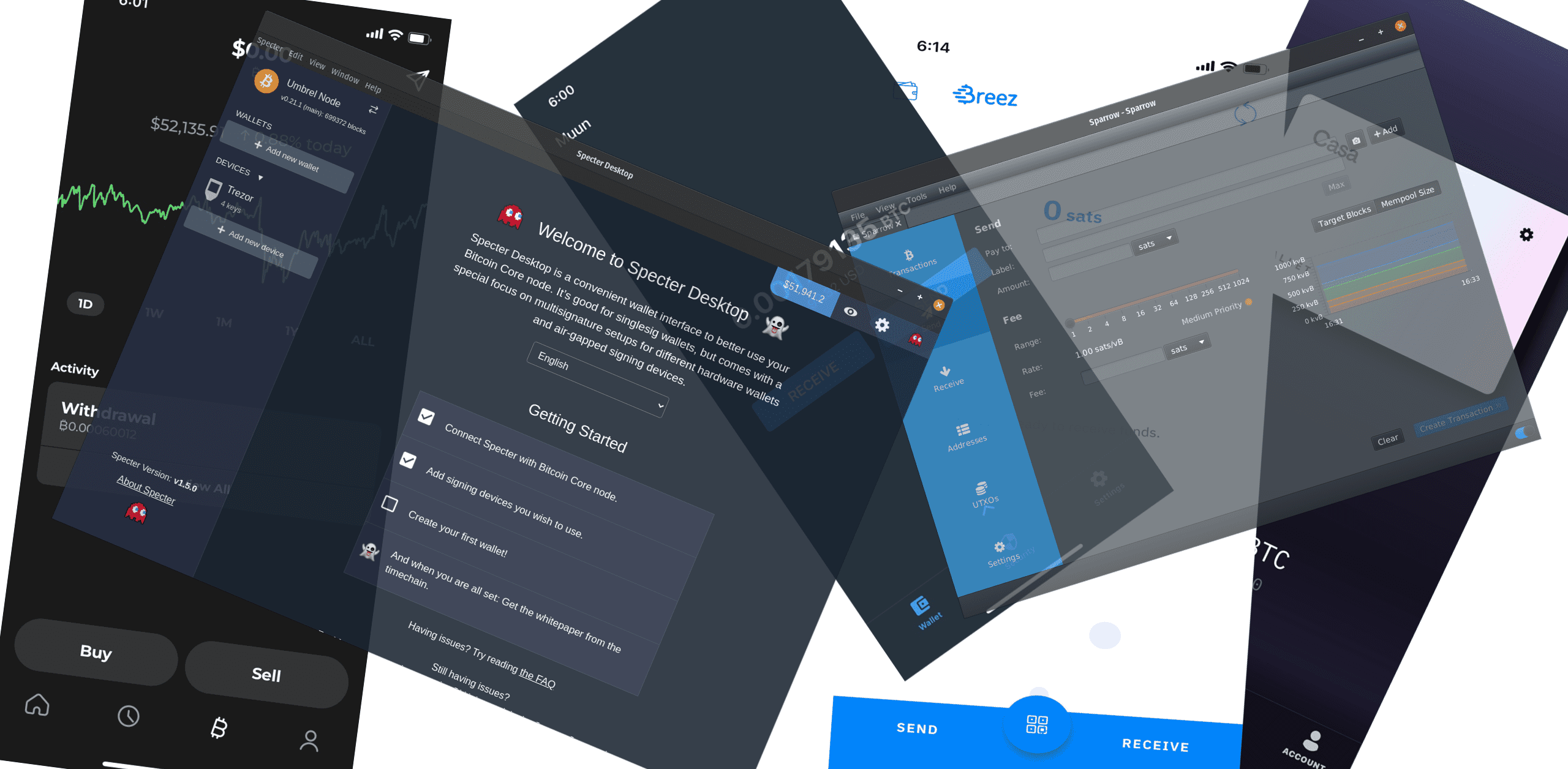A software wallet is used to hold value, is much like a regular wallet with the difference that a regular wallet does hold your physical fiat currencies be USD, EURO, YEN etc. and the Bitcoin software wallet does not hold actual Bitcoin, Bitcoin exists on the ledger also referred to as blockchain your software wallet holds you private and public keys which provide you access to receive and send on the blockchain.
There are several types of software wallets, in this post we will cover those types and their differences, also their uses and will also be including some of the ones that I have used before for your reference.
Software wallets are considered to be “HOT” wallets the reason for this is because they are installed on a computer or on mobile appliance like a smartphone or tablet for example and these are almost always connected to the internet, in comparison the hardware wallets are considered “COLD” wallets as these are almost always off line and they only get connected to a device that has internet access when the need to sign a transaction is there, some hardware wallets never have access to the internet.
Software wallets are also available as custodial and non-custodial, here are some of the differences:
– On a custodial wallet you do not hold your private keys this means that you are trusting the owner of the wallet to safeguard your bitcoin an example of a custodial wallet will be an exchange/app where you purchase your bitcoin like Coinbase, Binance, Cashapp, Strike etc. One of the benefits of this types of wallets is that if you loose your password for example you can contact the owner of the wallet and reset the password to regain access to your wallet, the biggest negative is that you do not hold the private keys, additionally some times exchanges get hacked and your bitcoin may disappear just like that.
– On a non-custodial wallet you hold the private keys this means that you have total control of your bitcoin an example of a non-custodial wallet will be wallets mentioned below like Muun, Green, Samourai, Electrum, Sparrow etc. the biggest benefit of these wallets is that you hold the private keys, one of the draw backs of this wallets is that if you loose access to your wallet and you did not properly save and back up your wallet recovery information you will loose access to your bitcoin and there is no company you can contact to help you regain that access.
Software wallets are available as web wallets, desktop wallets and mobile wallets:
Web wallets are online based services that are accessed via a web browser, in this case you do not need to install additional software to your mobile device or computer it also means that in most cases the private keys to your bitcoin are held by the website owner, this case is not preferred as it gives you little control over your bitcoin.
Some samples of web wallets are: BTC.com Wallet, Bitamp.com Wallet, Coin.space Wallet, Please note that I do not use nor recommend using these wallets but they do exist so I wanted to cover them here.
Desktop wallets is software that will required to be downloaded and installed on your computer or mobile device these type of wallets these wallets can be found as both custodial and non-custodial.
Some samples of desktop wallets: Electrum, Sparrow, Bitcoin Core, Specter Desktop I have experienced several of these.
Mobile Wallets are wallets that you install on your smartphone as an app from the the store for the operating system that you mobile phone uses being iOS or Android, these wallets are very convenient because you carry them around with you can be used by scanning QR codes to transfer Bitcoin into or out of it on the go, these can also be found as custodial and non-custodial.
Some samples of mobile wallets: Muun, Green from Blockstream, Samourai (Android), BlueWallet, Breez these are some of the wallets that I have experienced.
What does it all mean, the choice is yours you could start with custodial wallet and as you learn and get more comfortable around bitcoin and how to back up and safeguard your recovery you may want to move to a non-custodial wallet or not, at the end as I mentioned before the choice is yours, learn, practice and as you gain the experience it will be easier to make the correct decision for you.

